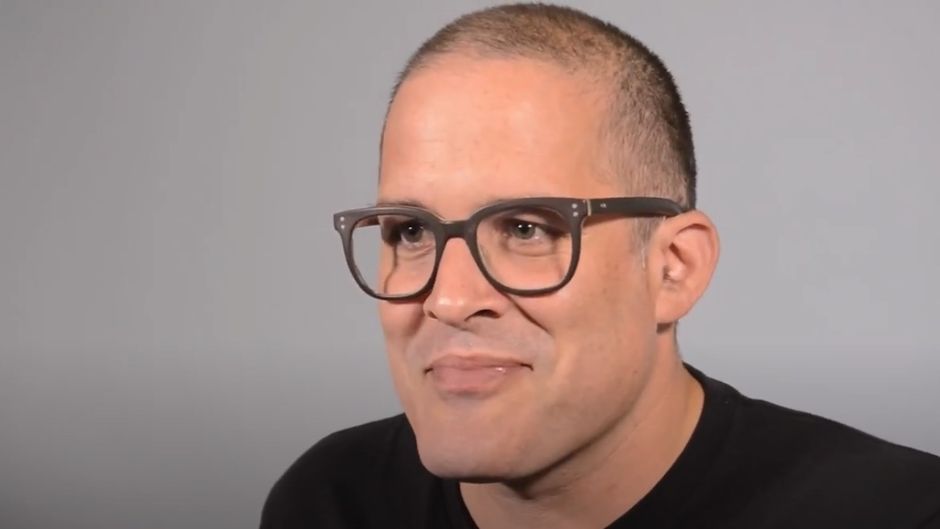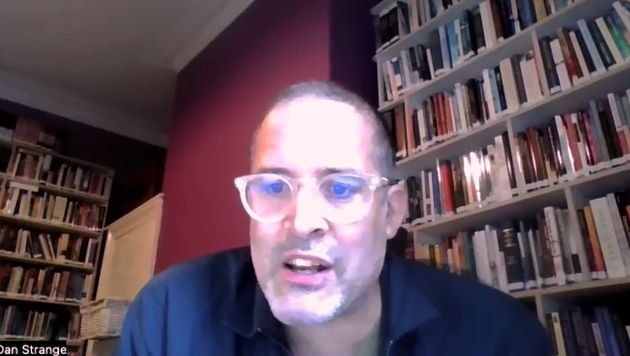In an interview, author and cultural analyst Dan Strange says Christians need to speak more about their faith: “All the things now valued in our post-Christian world have Christian origins, even when these have been distorted”.
 Daniel Strange, author and speaker.
Daniel Strange, author and speaker.
Many Christians see themselves as outsiders in a society increasingly distant from what we might consider a Christian or biblical culture. This makes it seem difficult to share the faith with those who have taken a path of scepticism.
The impact of social media on communication has fuelled the dialectical confrontation, increasing the polarisation and politicisation of any issue, and that affects religious convictions as well.
How can Christians be present in the conversation without falling into such traps? Is avoiding polarisation even possible?
These are some of the questions addressed by author and theologian Dan Strange, who will be a speaker at the next gathering in Spain of the Graduate Bible Groups (GBG, a movement focused on faith and work). He will speak on the theme of Worshipping God in the midst of culture: A magnetic faith.
Question. Many believe that Western cultures have become a post-Christian world. How do you think Christians fit into that world - if you agree with that definition?
Answer. Yes, I think we are in a quite strange and complex position at the moment.
On the one hand, we could say that the Christian faith has been marginalised, so we are a minority.
And yet, at the same time, in the structure of late modern society in Europe, Christianity is such an important part of the DNA, of the structure of the culture that even people who reject the Christian faith have to do so on the basis of the Christian faith.
So we are in a post-Christian situation, but in another sense, modernity is a kind of heresy of Christianity, and all the things that we now value in our post-Christian world has Christian origins, even if these have been distorted.
I know that's quite a complex answer, but I think that's the situation we are in now.
Someone said that it's almost as if we are living in the afterglow of Christianity, like when you take a picture and sometimes there's like a glowing halo. We are in that situation, but still Christian values are part of the structure of modernity.
Q. Could it be that we Christians have made the gospel irrelevant in our lives, and that is why it is so difficult for us to talk about our faith?
A. If we define the gospel too narrowly, or our discipleship too narrowly in terms of "what I do on a Sunday" or "when I'm in a home group", the gospel becomes diluted. But the gospel encompasses every part of our life. Not just our entering into faith, but our walk in faith. And we are called to think Christianity in everything we do. As Paul said: whether you eat, drink or whatever you do, do it for the glory of God. I think we find that difficult.
[destacate]“In a post-Christian situation, modernity is a kind of heresy of Christianity” [/destacate]Sometimes we find it difficult to talk about our faith because we are ashamed and afraid, and we have to face it. But it also happens that in this post-Christian situation, we are struggling to connect with people because they don't seem interested, or they don't find relevance to our message, there's no connection between our lives and theirs.
The question is what we want to talk about, and what "normal" people are doing. And that's why I think we find it difficult. So my job is to try to show that the connections are there, the traction can be found.
We have to be creative and imaginative in doing it. But the Bible sets out a vision of human beings who are inherently religious, and we can always find a point of contact. But it will be more difficult if we have a narrow view of the gospel and forget the breadth of the gospel, active in every area of life.
Q. The Culture Wars is a topic very present in the media and on social media today. Do you think Christians need to get involved in it?
A. Theologically speaking, we are in a spiritual battle. The Bible makes it very clear. We have a sense of being in a culture war because we're talking about different worldviews clashing with each other.
And I think the Bible makes it very clear that idolatry in its modern form, whatever it might be, needs to be tackled and brought down.
[destacate]“The Bible makes it very clear that idolatry in its modern form needs to be tackled and brought down. But how do we do it?” [/destacate]Now, the way we do that is certainly not through violence or through some kind of angry stance, but by giving reason for the hope that we have. It's trying to proclaim the gospel, and that involves confrontation and persuasion.However, we should not fit into the Culture Wars as they are drawn by the rest of the world, because sometimes it is set up as a very binary form of left or right.
We are involved in a spiritual war and in a sense there is a cultural war, but the weapons we use in that war are not human weapons and we must give a reason for the hope we have with gentleness and respect, while at the same time trying to tear down idols and encourage people to turn from idols to the living God, as it says in 1 Thessalonians.

Q. How can we address this cultural and political battle?
A. In a sense, the gospel is not apolitical, because I think the claim that "Jesus is Lord" is a political claim. Jesus is our supreme authority, politics is religious and the church is political in a sense.
But if that means that we think that the transformation of society will come about only by political means, then we are not on the right track. That is not what this is about.
I think politics has a part to play, but the problem we have in our modern society is that politics is everywhere. Everything has to be a political answer and I would love to have a situation where politics moves out of certain areas of life so that we can go back to when there was a quieter conversation in the public square.
It seems that politics spreads as if it has tentacles that appear everywhere. It's a problem.
Q. You argue in your books that Jesus responds to the longings of our society. What would you say are the most relevant and outstanding desires?
A. My book Making faith magnetic focuses on how the Bible talks about these five "itches" that we all have to scratch. So I explain them as relevant and notable desires, present in our world.
There is our desire for significance and connection, the question of identity, which is really important. I think we all recognise the need to be accepted, we know something is wrong in the world.
We want freedom and, yet we still want to know that there is some kind of meaning, an overarching meaning to existence, so that I would say that autonomy would be another one.
[destacate]“We must ask ourselves: what does it mean to be a Christian, what does it mean for my particular vocation?” [/destacate]And we find that it's impossible to be completely free; that we all worship something or someone, or that our identity is always set in something or someone; and that identity is ultimately to be found in Christ and in his church, and not in a way where we lose our individual identity, but we find it as we are attached to Jesus.
All the desires that our unbelieving or non-Christian friends have, there is a way in which the gospel confronts them and connects with them. That's what my work is about.
Q. I assume that some of these issues will be addressed in the plenary sessions of the December meeting in Spain.
A. Yes, that's what we will talk about, we will set a theological framework for this, but it's really important to explore this issue and contextualise it.
What does this mean particularly for Spain? And also, what does it mean in your particular area of Spain? Because that's where we need to examine the idols or objects of worship in Spanish culture and then show how the gospel confronts and connects with those who live around you.
Q. Do you think that the workplace is an appropriate place to live the faith?
A. You can't not live your faith. We are Christians and we need to be Christians in the workplace.
Of course, this does not mean just the way we behave with our colleagues, it means even thinking Christianly about the discipline that God has given us for our vocation.
We must ask ourselves: what does it mean to be a Christian, what does it mean for my particular vocation? That is why the workplace is an appropriate place to develop our faith.
God gave Adam this mandate to fill the earth and to be a steward in it. And that's where we're fulfilling it in our workplace, as well as carrying out the Great Commission to go and make disciples. I don't think those two things are opposites.
We should have opportunities to talk about our faith, but also to think, how do I apply my mind to my work as a Christian? That's why the workplace is a very appropriate space to live out faith.
[analysis][title]About Dan Strange[/title][text] Strange is the director of Crosslands Forum, a centre that brings together culture, religion and mission. He holds a PhD in Theology and Religious Studies from Bristol University and is a member of the leadership of East Finchley Baptist church in North London. [/text][/analysis]

Las opiniones vertidas por nuestros colaboradores se realizan a nivel personal, pudiendo coincidir o no con la postura de la dirección de Protestante Digital.
Si quieres comentar o